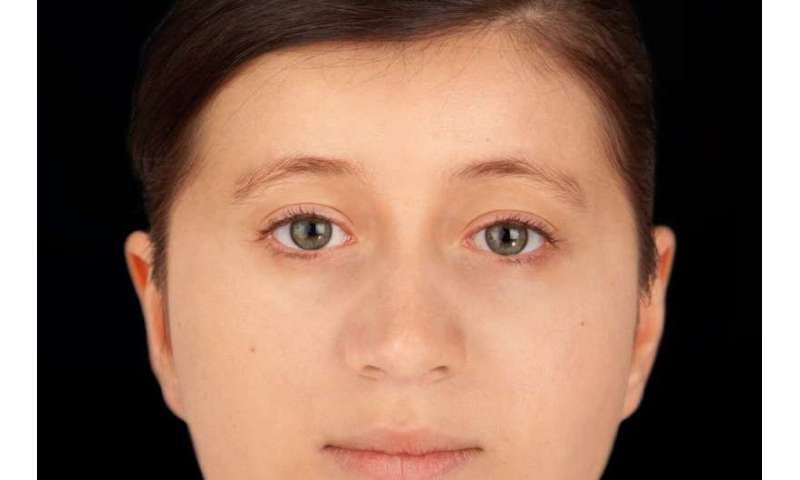Best of Last Week—Reconstructing an Anglo-Saxon teen, AI death spiral, gas stoves emit cancer-causing chemical

It was an interesting week for historical research as an international team of historians, archaeologists and evolution specialists reported that warfare was responsible for the boom-bust cycles of Neolithic societies—they found evidence of violent conflicts decimating many populations over time. Also, a team of archaeologists at the University of Cambridge used a variety of techniques to reconstruct the lifestyle and face of a 7th-century Anglo-Saxon teen. The 16-year-old girl's remains were discovered in 2012, along with a rare gold and garnet cross. And a team of Dutch archaeologists discovered a 4,000-year-old "Stonehenge"-like religious site and burial mound near the city of Utrecht.
In technology news, a team of telecommunications specialists from several institutions in Switzerland and France suggested that laser-enabled internet backbone via satellite may soon eliminate the need for deep-sea cables. They demonstrated the movement of massive amounts of data between mountain peaks during periods of disruptive air turbulence using such technology. And a team of computer scientists from the U.K. and Canada found evidence that suggested AI models feeding on AI data may face a death spiral. The team suggests the recursive nature of AI training could lead to model collapse. Also, a team of researchers from the University of Cambridge demonstrated the use of clean and sustainable fuels made from thin air and plastic waste. And an international team of engineers conducted a review of recent progress in robotic printing of surgical implants promoting cartilage regeneration to learn more about its safety and viability, and they found that there are still some challenges to overcome.
In other news, a team of medical scientists affiliated with multiple institutions in the U.S. found new excess mortality estimates that showed increases in the U.S. rural mortality rate during the second year of the COVID-19 pandemic—in the second year, excess deaths decreased in cities and increased in rural areas. Also, a team of physicists at MIT discovered a new switch for superconductivity—under certain conditions, atoms in iron selenide underwent a collective shift in their orbital energy. And finally, a team of environmental engineers from Stanford University and PSE Healthy Energy found that combustion from gas stoves can raise indoor levels of a chemical linked to blood cell cancers.
© 2023 Science X Network